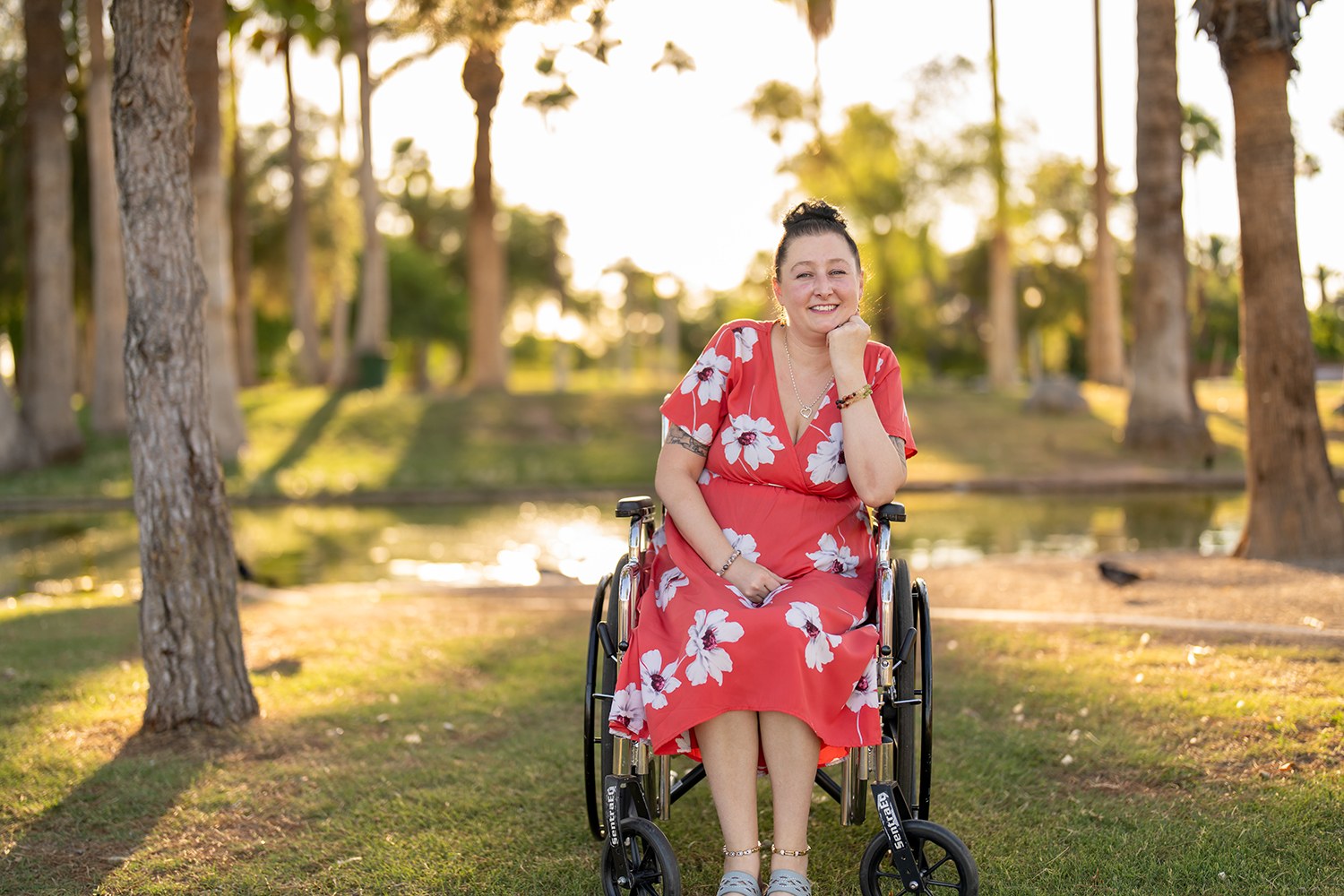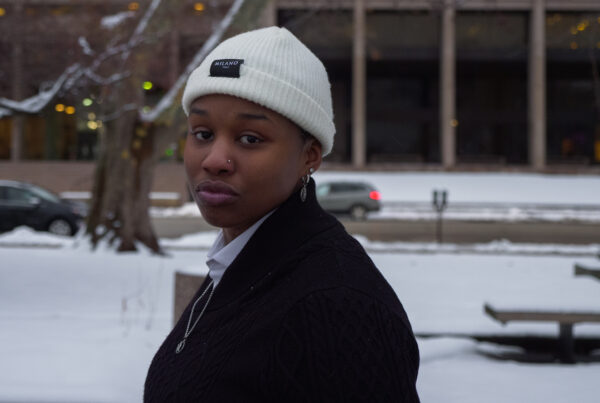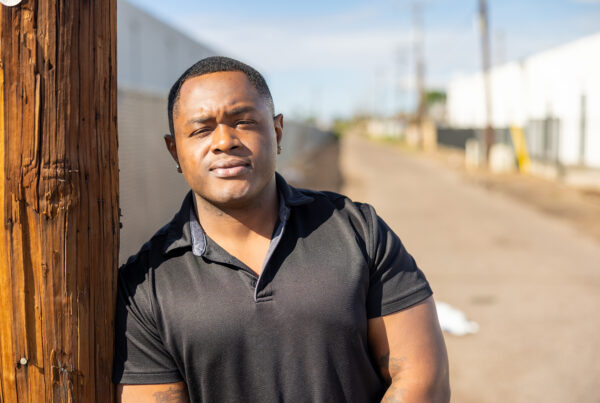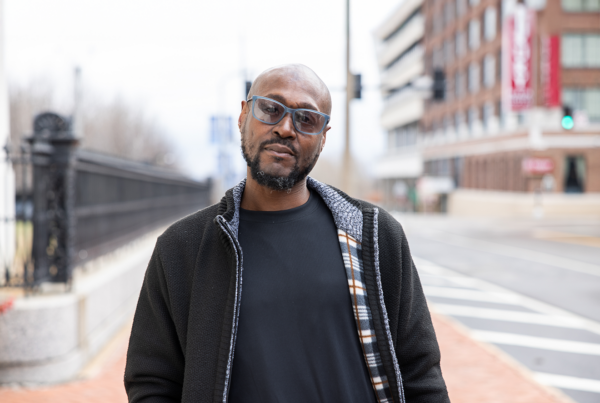Amanda says she had to crawl up the steps of the jail transport bus on her knees. She couldn’t walk unassisted – rheumatoid arthritis had twisted her joints – but no one offered help. The guards, she said, weren’t allowed to. So she dropped to her knees, gripping the stairs with what little strength she had in her left arm.
She was on her way to Estrella Jail in Phoenix. What followed was more than a month in jail, where Amanda says her condition was ignored by jail staff. She was left to the care of other incarcerated women – strangers who became caregivers.
Amanda is one of thousands of people with disabilities jailed every year in America’s pretrial system, punished not because they’ve been convicted of a crime, but because they can’t afford bail – $10,000 in Amanda’s case.
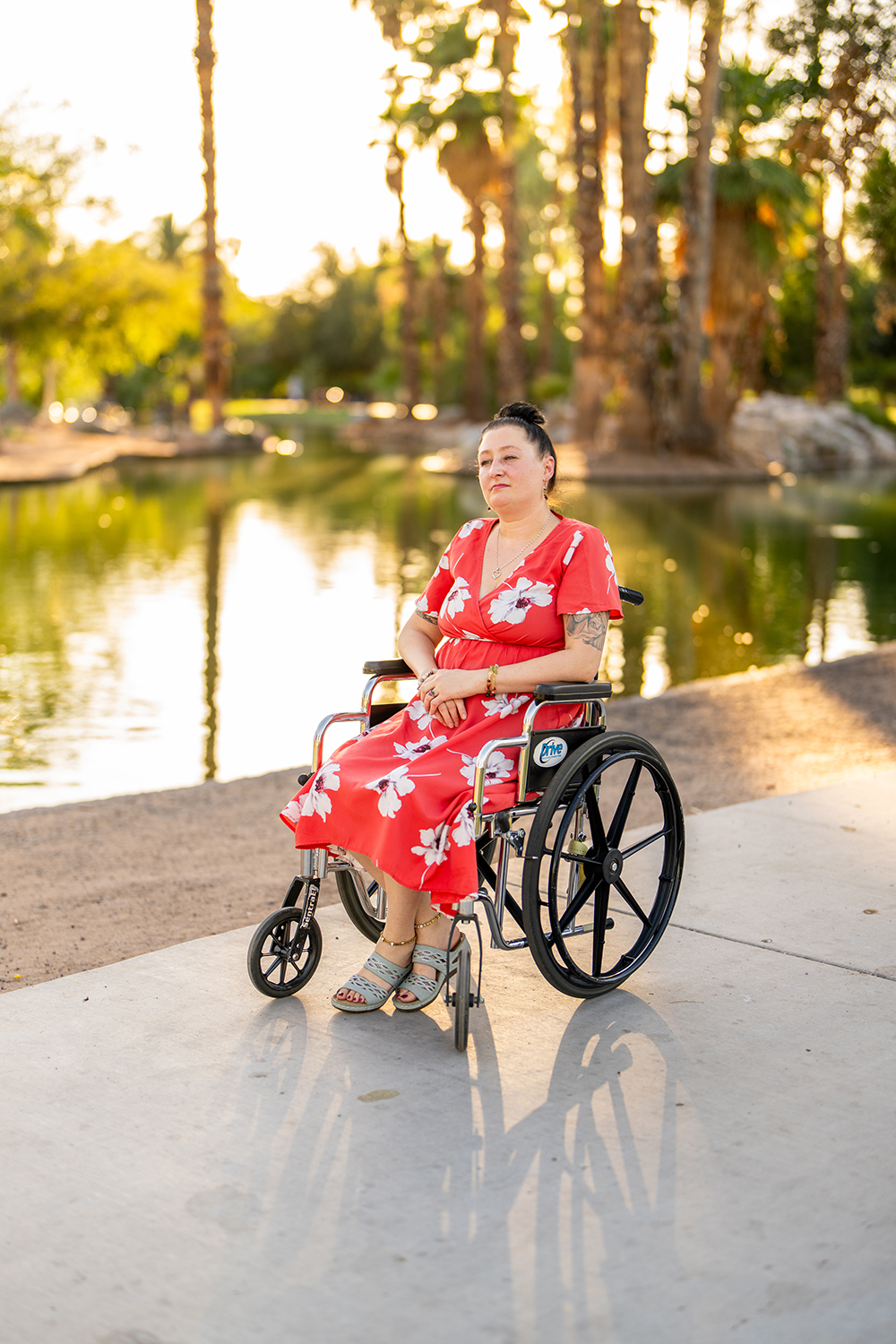
People with disabilities are dramatically overrepresented in the U.S. criminal justice system, particularly in jails, where nearly 40% of individuals report having at least one disability – four times the rate of the general population. Yet courts and detention facilities rarely track disability status, making these disparities largely invisible and reform efforts difficult to target. Disabilities span a broad range, including physical, cognitive, and communication-related conditions, each creating unique barriers within a system ill-equipped to accommodate them.
For those with disabilities, the justice system can be functionally inaccessible – from entering a courthouse or navigating complex legal proceedings without interpretation or support, to enduring incarceration without necessary medical care, mobility aids, or mental health services. Even brief detention can disrupt crucial benefits and care, compounding instability for those who often already live on the margins.
Amanda says she was headed to church on the morning of March 2, 2024, when she heard her husband screaming. He had taken one of their dogs, a high-energy “reservation dog” known for its need to run, out for a walk. Amanda stepped outside with her service dog and followed the sound of his voice around the corner. There, on a street behind their home in Mesa, Arizona, she saw two men, her neighbors, beating her husband.
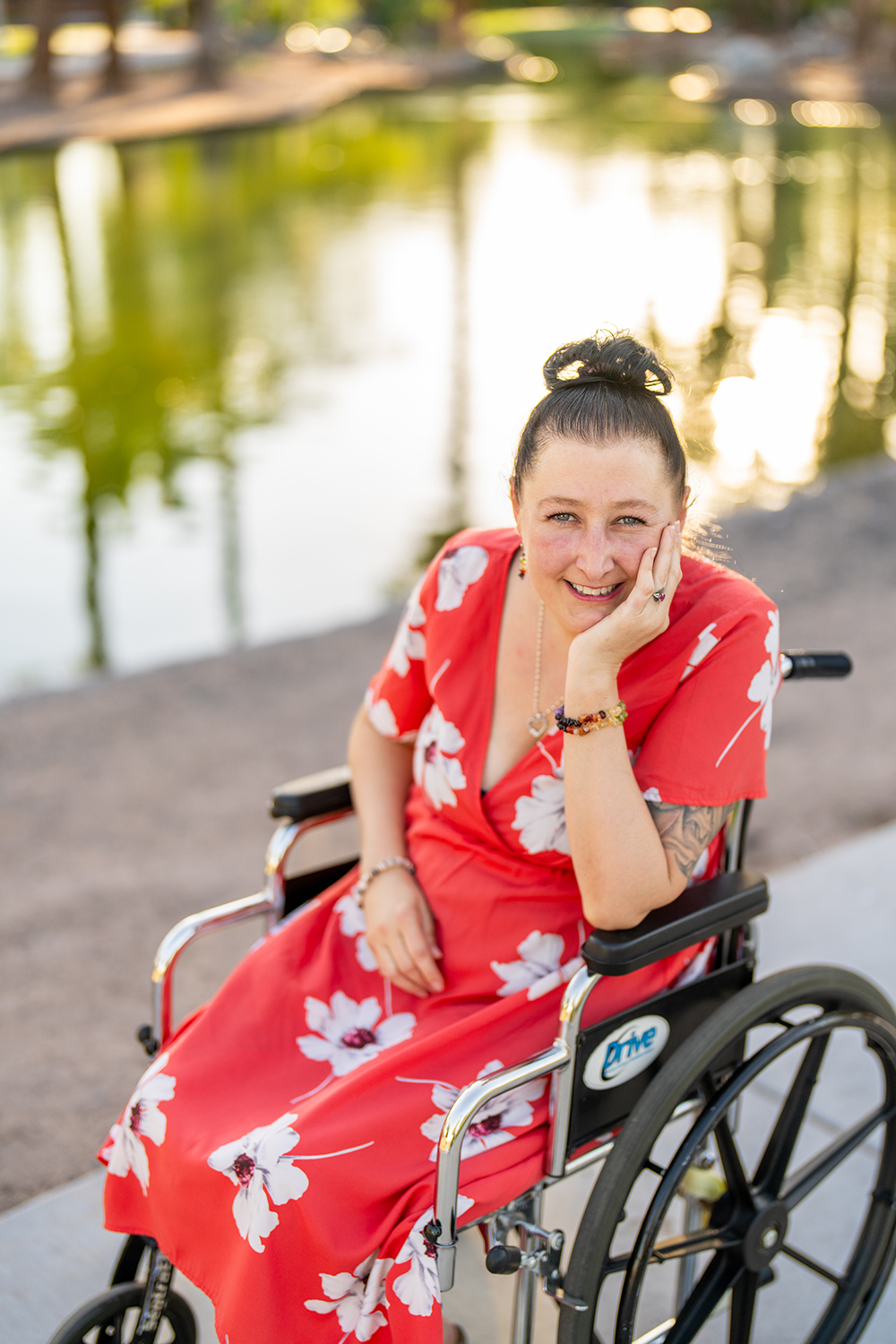
These neighbors, Amanda says, have a history of violence in the area and have been involved in a number of neighborhood disputes. She’s not clear on why they attacked her husband – he says he doesn’t know either – but suspects they felt provoked by his presence near their property.
Panicked, Amanda says she tried calling 911. She was put on hold. “I got a message saying my call would be answered in the order it was received,” she recalled. “I hung up and called my church.”
A friend arrived. But the beating continued. Amanda, desperate, retrieved a small handgun – a .25 caliber pistol registered to her – and returned to the scene. “I just showed it,” she said. “I didn’t shoot. I just wanted them to stop.”
The men backed off. Police arrived nearly 45 minutes after the assault began and arrested everyone. Amanda, though she had a legal firearm and never fired it, was charged with assault with a deadly weapon. She now faces up to 15 years in prison.
“They said, ‘Don’t do the crime if you can’t do the time.’ I told them, ‘I didn’t do a crime.’”
Estrella Jail, operated by the Maricopa County Sheriff’s Office, was not prepared to meet her needs. Amanda said she was denied a wheelchair despite explaining her condition: arthritis, spinal degeneration, limited mobility. “They said, ‘Don’t do the crime if you can’t do the time.’ I told them, ‘I didn’t do a crime.’”
She was denied a wheelchair. She slipped in the shower. She couldn’t bathe or use the toilet without help. She couldn’t lift her tray in the mess hall. “My right hand doesn’t open,” she said. “I used to be right-handed. Now I’m not.”
She was given meals that ignored her allergies to gluten and soy. “An 8-ounce milk and a dinner roll,” she says. “Even the peanut butter made me sick.” She withered. “I was starving myself, but not on purpose.”
Her medications were withheld, she says, with the jail insisting on contacting her doctor directly, despite Amanda providing full information for her physician and pharmacy. Days passed. Then weeks. “They just didn’t care,” she says.
She filed a grievance after a guard forcibly twisted her unusable hand while she was on the toilet. “She said I was hiding something. I said, ‘That hand doesn’t work.’” Amanda had been in jail for weeks. Her disability should’ve been known.
“And the guards – most of them didn’t care… If you were in pain, they acted like you were faking.”
She wasn’t alone. “There were women in there who were elderly, people arrested for being homeless, for being sick,” she says. “And the guards – most of them didn’t care… If you were in pain, they acted like you were faking.”
Amanda credits other incarcerated women with keeping her alive. “They were like extra moms,” she says. “They helped me sit. They helped me carry food. They gave me rice when I couldn’t eat anything else.”
One of them, a woman named Miracle, told her about The Bail Project. Amanda’s husband and a neighbor filled out the application. A few days later, she met with someone from the organization. “It really was a miracle,” Amanda said. “They got me out.”
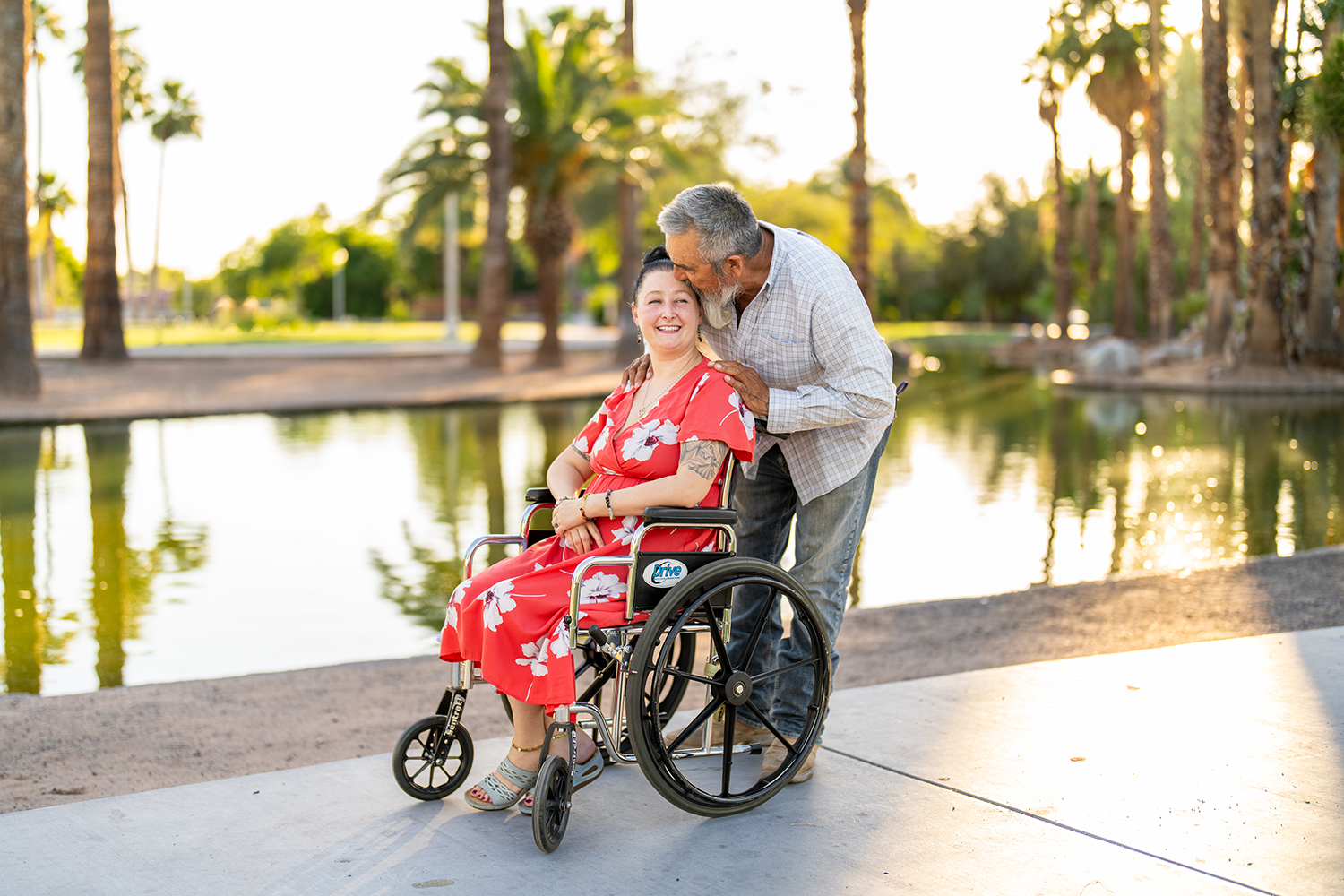
“We’re not criminals. We’re people who called for help.”
Amanda still faces charges. So does her husband, despite being the one attacked. She’s trying to secure a lawyer. Trying to recover her health. Trying to be heard. “We’re not criminals,” Amanda says. “We’re people who called for help.”
Amanda’s story is a stark reminder of how the American pretrial system fails its most vulnerable – treating disability not with care, but with suspicion and neglect.
She was presumed guilty not only of a crime, but of faking her pain and her need. And yet, she survived. With the help of other incarcerated women and an organization that recognized her humanity, Amanda found her way out. But freedom hasn’t meant justice.
As she continues to fight charges that she believes should have never been filed, Amanda carries the burden of proof – of her innocence, her illness, her very personhood.
Thank you for reading. The Bail Project is a 501(c)(3) nonprofit organization that is only able to provide direct services and sustain systems change work through donations from people like you. If you found value in this article, please consider supporting our work today.







